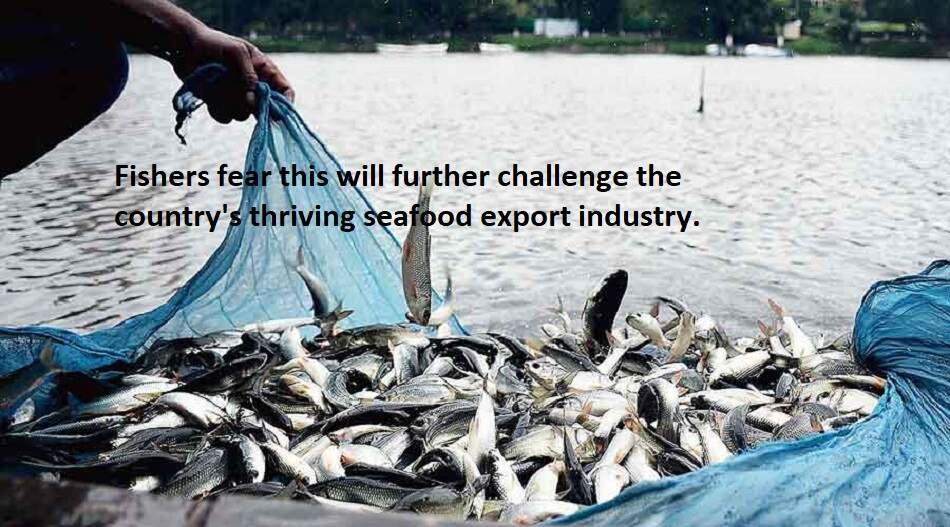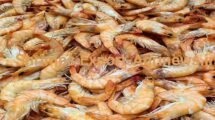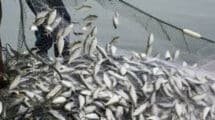The US Marine Mammal Protection Act puts Indian seafood exports at risk
India is implementing the Marine Mammal Protection Act 2026 to address the US ban on wild-caught shrimps without using turtle excluder devices (TEDs) in fishing boats. However, fishers fear this will further challenge the country’s thriving seafood export industry.
The traditional fishing community has expressed concern about the proposed regulation, claiming that it will harm fishermen while also disrupting trade and causing economic losses for exporting countries.
According to Charles George, president of Kerala Matsya Thozhilali Aikya Vedi, the traditional fishing sector is already suffering from severe financial stress as a result of the US ban on wild caught shrimps, and the implementation of the new Act will exacerbate the situation. He urged both the central and state governments to devise counter-strategies to prevent another fishery crisis.
Also Read | Coastal fisheries show surprising resilience to marine heat waves
The Kerala government is working on methods to install turtle excluder devices (TED) in fishing nets to overcome the US ban on wild-caught shrimp from India, which is in effect from August 2019, leaving the fishing community in anxiety. Fishery experts also discussed issues related to the challenges that the Indian seafood industry will face with the implementation of MMPA at a recent meeting in Kochi to devise an action plan to install TEDs in fishing boats.
The proposed MMPA would require all countries exporting seafood to the US market to follow the prescribed marine bycatch standards. The Act establishes stringent standards to prevent the death or serious injury of dolphins, whales, and other marine mammals that are frequently trapped or entangled in fishing nets.
Pawan Kumar G., national president of the Seafood Exporters Association of India, stated that, in addition to the MMPA on ocean catch, the US is implementing FSMA 204 to track aquaculture shrimps. However, he stated that the sector would more or less comply with the MMPA by installing TEDs in trawler boats. “We need to study if there is any further clause in the Act to follow” , he commented.
Sunil Mohammed, a fishery scientist, stated that while the MMPA presents challenges for exporters, it also encourages more sustainable fishing practices that benefit marine mammals in the long run. The Act’s strict standards encourage foreign fisheries to adopt more sustainable fishing practices that reduce bycatch of marine mammals.
This would have a positive effect on global marine mammal populations. He added that the Act can help to create a more sustainable future for marine mammals and the seafood industry by encouraging collaboration, technological advancements, and responsible fishing practices.
The Marine Products Export Development Authority has already funded a marine mammal assessment in Indian waters by CMFRI and the Fisheries Survey of India.


















Add Comment